
The second Balkenende cabinet was the executive branch of the Government of the Netherlands from 27 May 2003 until 7 July 2006. The cabinet was formed by the Christian-democratic Christian Democratic Appeal (CDA), the conservative-liberal People's Party for Freedom and Democracy (VVD), and the social-liberal Democrats 66 (D66) after the election of 2003. The cabinet was a centre-right coalition and had a slim majority in the House of Representatives with Christian Democratic Leader Jan Peter Balkenende serving as Prime Minister. Liberal Leader Gerrit Zalm, a former Minister of Finance, served as Deputy Prime Minister and returned as Minister of Finance, while former Progressive-Liberal Leader Thom de Graaf served as Deputy Prime Minister and Minister without Portfolio for the Interior.
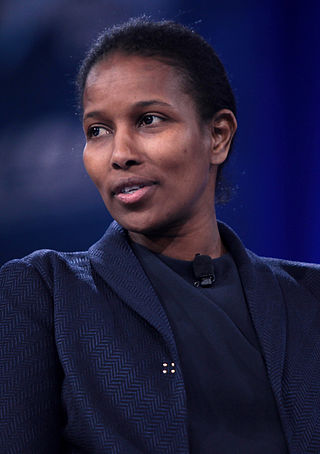
Ayaan Hirsi Ali is a Somali-born Dutch-American activist and former politician. She is a critic of Islam and advocate for the rights and self-determination of Muslim women, opposing forced marriage, honour killing, child marriage, and female genital mutilation.

Theodoor van Gogh was a Dutch film director. He directed Submission: Part 1, a short film written by Somali writer and politician Ayaan Hirsi Ali, which criticised the treatment of women in Islam in strong terms. On 2 November 2004, he was murdered by Mohammed Bouyeri, a Dutch-Moroccan Islamist who objected to the film's message. The last film Van Gogh had completed before his murder, 06/05, was a fictional exploration of the assassination of Dutch politician Pim Fortuyn. It was released posthumously in December 2004, a month after Van Gogh's death, and two years after Fortuyn's death.
Jason Walters or Jamal is a Dutch citizen who was sentenced to fifteen years in prison on charges related to Islamic terrorism.

Louse Wies Sija Anne Lilly Berthe "Lousewies" van der Laan is a retired Dutch politician of the Democrats 66 (D66) party and jurist.

Maria Cornelia Frederika "Rita" Verdonk is a Dutch politician and businesswoman formerly affiliated with the People's Party for Freedom and Democracy (VVD) and later Proud of the Netherlands (TON), which she founded in 2007. Since 2022, she has been a municipal councillor of The Hague, elected on the list led by Richard de Mos.
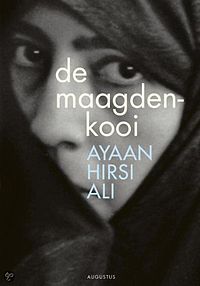
The Caged Virgin: A Muslim Woman's Cry for Reason, also published as The Caged Virgin: An Emancipation Proclamation for Women and Islam, is a 2004 book by the former Dutch parliamentarian Ayaan Hirsi Ali. The Caged Virgin was first published in English in 2006.

Afshin Ellian is an Iranian-born Dutch professor of law, philosopher, poet, and critic of political Islam. He is an expert in international public law and philosophy of law.

Infidel is a 2006 autobiography of Ayaan Hirsi Ali, a Somali-Dutch activist and politician. Hirsi Ali has attracted controversy and death threats were made against Ali in the early 2000s over the publication of the book.

Khadija Arib is a Moroccan-Dutch politician of the Labour Party, who served as Speaker of the House of Representatives of the Netherlands from 12 December 2015 to 7 April 2021. In the 2016 Speaker of the Dutch House of Representatives election on 13 January, she was elected to the position, which she had served as Acting Speaker since the resignation of Anouchka van Miltenburg on 12 December 2015. Arib became a member of the House of Representatives following the 1998 Dutch general election and served until 2022, with a brief interruption between 2006 and 2007.
The term New Atheism was coined by the American journalist Gary Wolf in 2006 to describe the positions of some atheist academics, writers, scientists, and philosophers of the 21st century. New Atheism advocates the view that superstition, religion, and irrationalism should not simply be tolerated. Instead, they should be criticised, countered, examined, and challenged by rational argument, especially when they exert strong influence on the broader society, such as in government, education, and politics. Major figures of New Atheism include Richard Dawkins, Sam Harris, Christopher Hitchens and Daniel Dennett, collectively referred to as the "four horsemen" of the movement, as well as Ayaan Hirsi Ali until her conversion to Christianity in 2023.
The Huizinga Lecture is an annual lecture in the Netherlands about a subject in the domains of cultural history or philosophy. The lecture is in honour of Johan Huizinga, a distinguished Dutch historian (1872–1945) who worked in the first half of the 20th century. The Lecture is organized by nationwide daily general newspaper NRC Handelsblad, the Faculty of Humanities of Leiden University, and the Maatschappij der Nederlandse Letterkunde. Attendance at the lecture was free of charge for subscribers to NRC Handelsblad, members of the Faculty of Humanities, and members of the Maatschappij der Nederlandse Letterkunde until 2010. From 2011 onwards tickets have to be bought. The lecture is held alternately by a Dutch and a non-Dutch intellectual.
This is a bibliography of literature treating the topic of criticism of Islam, sorted by source publication and the author's last name.
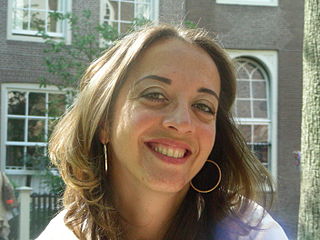
Ebru Umar is a Dutch columnist of Turkish descent. Under the influence of Theo van Gogh, she gave up a career in management and became a columnist, first for van Gogh's website and, after he was assassinated, as his successor as a regular columnist of Metro. She writes for a number of Dutch magazines and has published four books, often on the topics of feminism and criticism of Islam.
Honor Diaries is a 2013 documentary film produced by the Clarion Project, whose films have been criticized by some for allegedly falsifying information and described as anti-Muslim propaganda. Honor Diaries explores violence against women in honor-based societies, with particular focus on female genital mutilation (FGM), violence against women and honor killings and forced marriage, and lack of access to education.
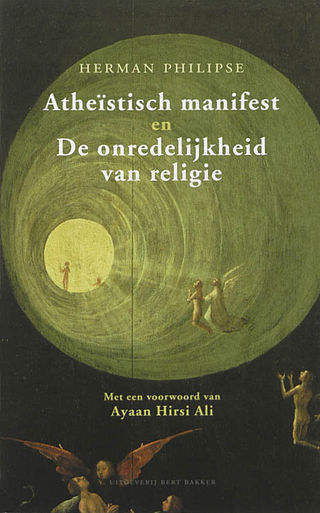
Atheïstisch manifest: drie wijsgerige opstellen over godsdienst en moraal is an essay bundle by the Dutch philosopher Herman Philipse. Originally published in 1995, Philipse brought out a new version in 2004 that included a new bundle of four essays titled De onredelijkheid van religie. The compilation was published under the name Atheïstisch manifest en De onredelijkheid van religie.

Dora Dolz de Herman was a Spanish-Dutch artist, best known for her outdoor ceramic works in the form of chairs and sofas.
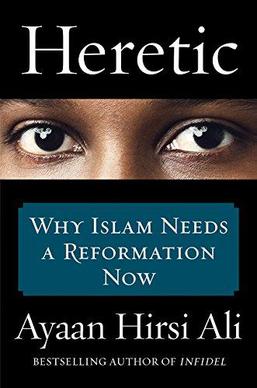
Heretic: Why Islam Needs a Reformation Now, also published as Heretic: Why Islam Must Change to Join the Modern World, is a 2015 book by Ayaan Hirsi Ali, in which the author advocates that a Muslim reformation is the only way to end the horrors of terrorism, sectarian warfare and the repression of women and minorities.
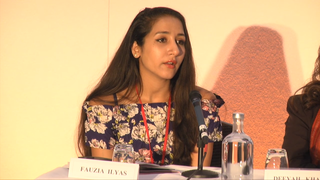
Fauzia Ilyas is a Dutch Pakistani speaker, political activist, and the president and co-founder of Atheist & Agnostic Alliance Pakistan. Ilyas, an open atheist and apostate of Islam, fled from Pakistan after receiving threats to her life and faced potential legal charges for blasphemy in Pakistan. Ilyas received asylum in the Netherlands, where she is now a critic of Islam and campaigner for feminism, secularism, and atheist rights in Pakistan.
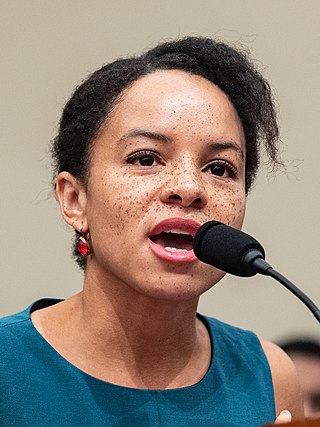
Samira Rafaela is a Dutch politician of Democrats 66, who has been serving as a Member of the European Parliament since 2019 and was also a member of the young democrats.















